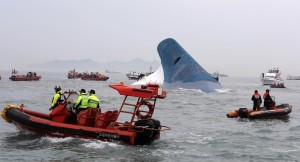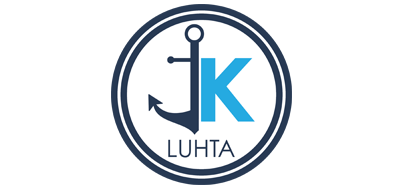A lot has been said in various media channels about the South Korean ferry incident. First off let’s acknowledge that it is an epic disaster beyond what any mariner or family can prepare for. My sympathy goes out to the families who have lost loved ones.
As far as what occurred on board that ship, the picture is not clear. We know the Captain regularly monitored the progress of the vessel and then turned in for rest. It is not improper or illegal for a Captain to rest while the navigation of the vessel is in the hands of a junior officer. That is how ships work. The Captain obviously felt secure enough in the abilities of his Third Officer to allow the Third Officer to continue navigating his watch.
How long was the Captain below deck before the Third Officer ran into trouble and what caused the ship to take on a list? There are many theories being bandied about and the reality is that there are just as many factors as theories as to what could have contributed to the incident.
Ferries are often domestic vessels with relation to their respective nation of operation. This South Korean ferry traveled from one South Korean destination to another, which potentially could have allowed the vessel to be exempt from Safety of Life at Sea (SOLAS) requirements. The main objective of the SOLAS Convention is to specify minimum standards for the construction, equipment and operation of ships, compatible with their safety. Flag states are responsible for administering SOLAS certifications and standards are enforced through periodic inspections.
Since the South Korean ferry did not travel to international destinations there was no requirement that it comply with international shipping rules such as SOLAS. In an effort to promulgate safety, flag states frequently hold their domestic vessels to similar standards as international vessels. But it is possible that this was not the case with this ferry. And if South Korea did apply SOLAS requirements, it is possible that the inspections and certifications were not to the highest standards since auditors and operators knew that they would not be heavily challenged in the international shipping community.
There is no evidence yet to suggest that this is the case with the South Korean ferry but it may come to light as a factor in the disaster.
